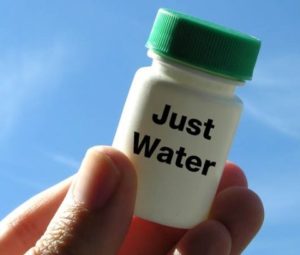 Homeopathy is bunk. Most people I encounter who disagree with this statement do not actually know what homeopathy is. They think it is some kind of herbalism or natural medicine. No – it is a prescientific superstition-based system of magic potions.
Homeopathy is bunk. Most people I encounter who disagree with this statement do not actually know what homeopathy is. They think it is some kind of herbalism or natural medicine. No – it is a prescientific superstition-based system of magic potions.
The basic idea is that you start with a fanciful treatment based on notions like sympathetic magic and incidental characteristics (like hair color). Then you dilute that fanciful treatment out of existence – so it doesn’t really matter anyway. Homeopathy is literally nothing, but homeopaths believe that the magical “essence” of the substance remains.
Unsurprisingly, clinical trials of homeopathic potions have convincingly shown that homeopathy works for nothing. So it can’t work, and in fact it doesn’t work.
So why is homeopathy still a thing? That is a fascinating question dealing with culture, human psychology, and political failure.
There is also an aspect of homeopathy that dovetails with another pseudoscience – the anti-vaccine movement. Homeopathic nosodes, which are just as useless as all other homeopathic potions, are offered as a substitute for vaccines. This way you not only waste money on a worthless health scam, you also forgo safe and effective medicine – a nice double whammy.
Nosodes are prepared by taking body fluid from a diseased person or animal and then diluting it so that you have – water. This water is then given to prevent the disease that the person or animal from which the fluid was taken had.
In addition to giving fake medicine instead of effective medicine to prevent a serious and communicable disease, there is some risk to the preparation process itself. Homeopaths are making nosodes of HIV, ebola, Hepatitis, and other serious infectious diseases. That’s right – their answer to the HIV epidemic in Africa, or to ebola outbreaks, is to give their fake medicine.
Are there any clinical trials of homeopathic nosodes that show they work? No. Homeopaths largely rely upon what they call a “homeopathic pathogenetic trials.” This is a great example of pseudoscience, because it follows some of the forms of real science, but isn’t doing actual science.
Here is one of an HIV nosode – they basically give 15 volunteers water, I mean an HIV nosode, and 7 volunteers water, I mean placebo. The volunteers are trained to record every symptom they experience. Over four weeks the HIV nosode water group recorded 130 symptoms, while the placebo water group recorded 60 symptoms. Those ratio’s are remarkably similar to the number of people in each group – twice as many people reported twice as many random symptoms. Shocking.
This is what passes for science in homeopathy. What they rarely do are actual efficacy trials designed to answer the real question – do the potions work? When high quality efficacy trials of homeopathy are done, they usually turn out negative, and systematic reviews have all been negative. So they mostly don’t bother with such trials, instead doing their HPTs, and observational trials, or looking at markers, so that they can pretend they are doing science.
This nonsense isn’t limited to humans. Recently there was outrage over homeopathic nosodes given to pets. These cats and dogs might get serious and preventable diseases because their owners relied on homeopathic nosodes they purchased on Amazon instead of real vaccines.
Opting for homeopathic remedies in favour of vaccines can be the cause of fatal viral diseases including parvovirus and herpes virus, the RSPCA said.
The former kills nine in 10 dogs who contract it, the latter can prompt a pregnant dog to abort her puppies or kill an entire litter of young puppies to die over 24 hours.
The British Veterinary Association said that skipping vaccinations can also be the cause of zoonotic diseases, such as canine leptospirosis, which can be infectious to humans.
Allowing people to die from fake vaccines is one thing, but you cross a line when you allow cats and dogs to die from preventable infections.
What I don’t get is the unwillingness to properly deal with homeopathy from a regulatory standpoint. Why is the political will lacking? It seems that part of the problem is that many politicians are not scientists or even minimally scientifically literate. But odds are most still realize that homeopathy is snake oil, or at least would listen to the overwhelming scientific consensus that homeopathy is snake oil.
There just doesn’t seem to be any political incentive to do so. This is a manifestation of a broken political system, where there is insufficient motivation to do something so obviously beneficial and correct like banning 100% fake medicine. But I also think this is a failure of the scientific and academic communities. There is a paucity of outrage at the infiltration of pseudoscience into our culture and our medical system. That is our fault. And if we lack proper outrage, how can we expect others to have it?
The underlying problem is that many snake oils like homeopathy fly under the radar. Many doctors don’t know what it is, do not know how much it has insinuated itself into the system, and don’t know the regulations. They are happy to ignore it and assume it is a small and benign fringe. They are wrong. This situation is easily remedied through education. Once properly informed, most health care professionals are properly outraged. Let’s have more of that.
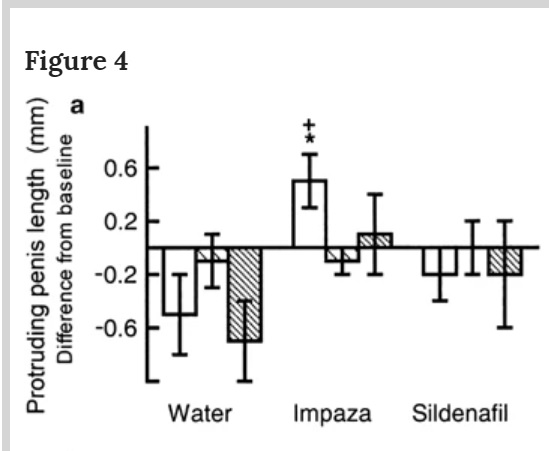 A study by Russian researcher purports to find that a treatment, Impaza, increases penis length during copulation in rats, while the water placebo group and sildenafil (Viagra) did not. The authors conclude: “This effect, together with an absence of motivational actions, suggests that Impaza may be the most valuable treatment for erectile dysfunction.” The study was originally published in the International Journal of Impotence Research, but was later retracted by the editors. The primary reason for the retraction is that the editors discovered that Impaza is a homeopathic product, something that was apparently missed on initial peer review.
A study by Russian researcher purports to find that a treatment, Impaza, increases penis length during copulation in rats, while the water placebo group and sildenafil (Viagra) did not. The authors conclude: “This effect, together with an absence of motivational actions, suggests that Impaza may be the most valuable treatment for erectile dysfunction.” The study was originally published in the International Journal of Impotence Research, but was later retracted by the editors. The primary reason for the retraction is that the editors discovered that Impaza is a homeopathic product, something that was apparently missed on initial peer review.
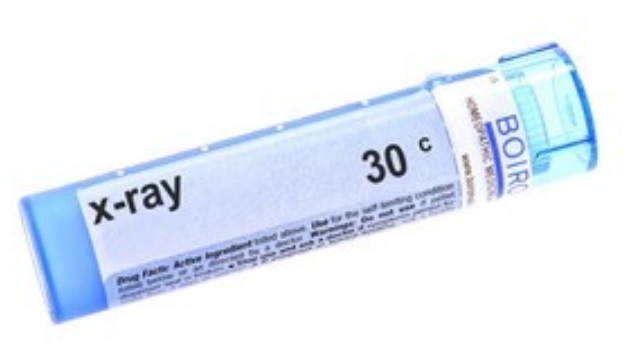 Homeopathy
Homeopathy 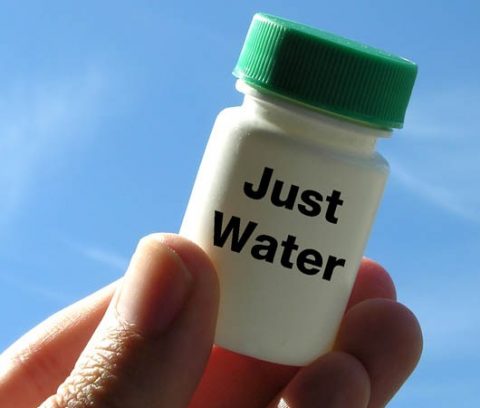 The Center for Inquiry (CFI)
The Center for Inquiry (CFI)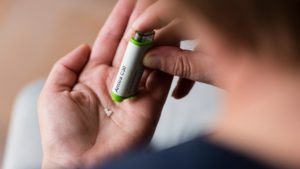 France is the world’s biggest consumer of
France is the world’s biggest consumer of 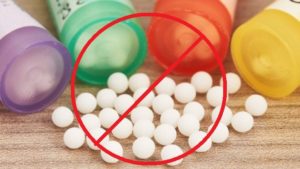 The National Health Service (NHS) in England decided in November 2017 to stop funding homeopathic treatments. That was an excellent decision, made for the right reasons – “lack of robust evidence of clinical effectiveness”. While I think that is an understatement, it is true enough, and is sufficient justification for any modern health care system to abandon homeopathy.
The National Health Service (NHS) in England decided in November 2017 to stop funding homeopathic treatments. That was an excellent decision, made for the right reasons – “lack of robust evidence of clinical effectiveness”. While I think that is an understatement, it is true enough, and is sufficient justification for any modern health care system to abandon homeopathy. Homeopathy is bunk. Most people I encounter who disagree with this statement do not actually know what homeopathy is. They think it is some kind of herbalism or natural medicine. No – it is a
Homeopathy is bunk. Most people I encounter who disagree with this statement do not actually know what homeopathy is. They think it is some kind of herbalism or natural medicine. No – it is a  Here we go again.
Here we go again.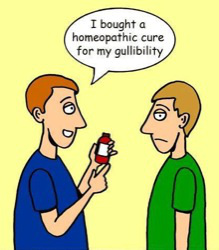 As I continue my efforts to fight against pseudoscience in medicine, I often ask myself – how bad can it theoretically get? I have had this discussion with others as well, some of whom argue that we should not worry because science will win out in the long run. Science is self-corrective, and pseudoscience will become marginalized over time. I hope this optimistic view is correct, but I am not reassured by the evidence.
As I continue my efforts to fight against pseudoscience in medicine, I often ask myself – how bad can it theoretically get? I have had this discussion with others as well, some of whom argue that we should not worry because science will win out in the long run. Science is self-corrective, and pseudoscience will become marginalized over time. I hope this optimistic view is correct, but I am not reassured by the evidence.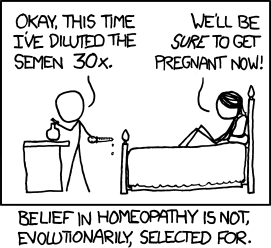 I have long considered homeopathy to be the softest of targets for skeptics, especially in the area of alternative medicine.
I have long considered homeopathy to be the softest of targets for skeptics, especially in the area of alternative medicine. 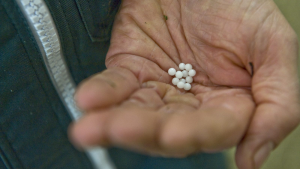 A Canadian academic, Dr. Mark Loeb, who is a respected infectious disease researcher who knows how to conduct high quality research, wants to study homeopathic nosodes. Nosodes are essentially homeopathic vaccines.
A Canadian academic, Dr. Mark Loeb, who is a respected infectious disease researcher who knows how to conduct high quality research, wants to study homeopathic nosodes. Nosodes are essentially homeopathic vaccines.




